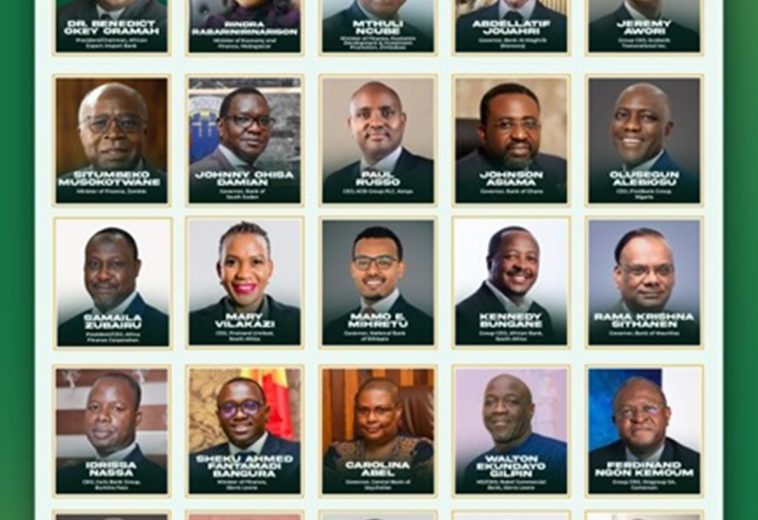The demand for transparency in governance has reached unprecedented levels. Citizens, civil society organisations, and international bodies around the world are holding governments to account like never before. A key aspect of this movement is the establishment of ethics commissions, public asset declaration systems, and anti-corruption frameworks, all of which are central to promoting good governance. The United Nations Convention Against Corruption (UNCAC), adopted in 2003, stands as a pivotal global initiative. As of 2023, 191 parties, including 186 UN member states, have committed to its principles.
The UNCAC outlines the need for strong legal and institutional frameworks to fight corruption, enhance transparency, and ensure accountability in public office. From Europe to Asia, the international community has made it clear that ethical standards are non-negotiable. Consequently, countries around the world have introduced similar anti-corruption measures, setting the stage for a global fight for integrity in leadership.
READ ALSO: African Leadership Council appoints David Mathu, MBS, as Kenya’s Country Head
Africa, with its diverse political landscape, has made notable progress in addressing corruption and promoting transparency. However, the continent continues to face significant challenges that hinder the full realisation of ethical governance. Across Africa, various nations have set up institutions designed to combat corruption, promote transparency, and enforce accountability in public service. A key example is Sierra Leone, where the Anti-Corruption Commission (ACC) has made significant strides in increasing compliance with asset declarations. In 2020, the ACC introduced a fully online system for asset declarations, leading to a dramatic rise in submissions, from 17,212 in 2019 to over 35,000 in 2020. This digital shift has streamlined processes, reduced opportunities for manipulation, and made the public asset declaration system more efficient. Such innovations demonstrate how technology can enhance transparency and build public trust in government institutions.
In Ghana, the establishment of the Office of the Special Prosecutor (OSP) in 2018 marked a significant step forward in the country’s battle against corruption. The OSP was created as an independent body to investigate and prosecute corruption-related offences, a groundbreaking move in a region often plagued by political interference in the judiciary. Ghana’s commitment to anti-corruption efforts is further reflected in the work of other institutions, such as the Economic and Organised Crime Office (EOCO) and the Financial Intelligence Centre (FIC), both of which focus on tackling financial crimes and money laundering. This multi-pronged approach has positioned Ghana as a leader in West Africa in terms of anti-corruption policy, though challenges like political resistance and limited resources continue to hinder the overall effectiveness of these institutions.
In Nigeria, the Independent Corrupt Practices and Other Related Offences Commission (ICPC), established in 2000, is responsible for investigating corruption cases. In recent years, the Nigerian government has focused on improving the commission’s investigative capabilities by incorporating advanced forensic tools and ICT infrastructure. While these advancements have strengthened the ICPC’s ability to investigate and prosecute corruption, the commission continues to face criticisms regarding political interference and insufficient independence, which often limits its reach and impact. Similarly, Ethiopia’s Federal Ethics and Anti-Corruption Commission (FEACC) faces its own set of challenges. Despite being tasked with overseeing asset disclosures and investigating public sector misconduct, the FEACC is frequently criticised for its limited autonomy and inadequate resources. These challenges are not unique to Ethiopia, as many African nations share similar obstacles that prevent their anti-corruption frameworks from achieving their full potential.
However, Rwanda offers a more optimistic example in terms of transparency and good governance. The Office of the Ombudsman, established in 2003, has played a key role in combating corruption and promoting ethical conduct in public service. Rwanda’s progress in this area is reflected in its score on Transparency International’s Corruption Perception Index, which has steadily improved over the years. In 2024, Rwanda scored 57 out of 100, up from 51 in 2022. While Rwanda’s success is notable, the country’s model is often viewed as highly centralised, raising questions about the long-term independence of its institutions.
Moving Forward: Strengthening Institutional Frameworks
The road ahead for African countries in their efforts to promote ethical governance is fraught with challenges. While the creation of ethics commissions and anti-corruption frameworks is a step in the right direction, a more comprehensive approach is necessary to ensure that these institutions operate effectively and independently. One major challenge African nations face is ensuring that anti-corruption bodies remain free from political influence. Corruption cannot be eradicated if the institutions responsible for fighting it are themselves vulnerable to political interference. As such, it is crucial to protect the independence of these bodies to enhance their credibility and effectiveness.
Adequate funding and resource allocation are also vital for ensuring these institutions can carry out their mandates. Many anti-corruption agencies in Africa operate with limited resources, which hampers their ability to conduct thorough investigations and implement large-scale reforms. Governments must prioritise funding these institutions to ensure they have the tools and personnel necessary to fulfil their roles effectively.
The role of technology in promoting transparency cannot be overstated. Countries like Sierra Leone have demonstrated how digital systems can improve transparency, streamline processes, and reduce corruption. Expanding the use of technology in asset declaration systems, public procurement, and financial transactions could help African nations combat corruption more effectively. Moreover, public engagement is crucial for fostering a culture of accountability. Citizens must be educated on the importance of ethics and encouraged to report corrupt practices without fear of retaliation. A participatory approach can help build trust between governments and the citizens they serve.
The struggle for ethical governance in Africa is ongoing. While progress has been made, much remains to be done. African nations must continue to strengthen their anti-corruption frameworks, improve institutional independence, and allocate sufficient resources to these efforts. Additionally, embracing technological innovations and encouraging public engagement will be key to advancing the fight against corruption. Only through a comprehensive and inclusive approach will African nations be able to ensure that transparency and accountability become the cornerstones of governance. The road to ethical leadership is long and challenging, but with sustained commitment and collective action, Africa can make significant strides towards a more transparent and accountable future.




